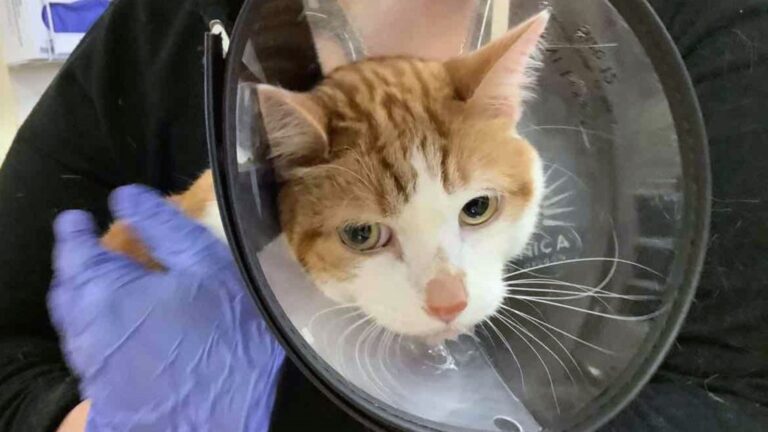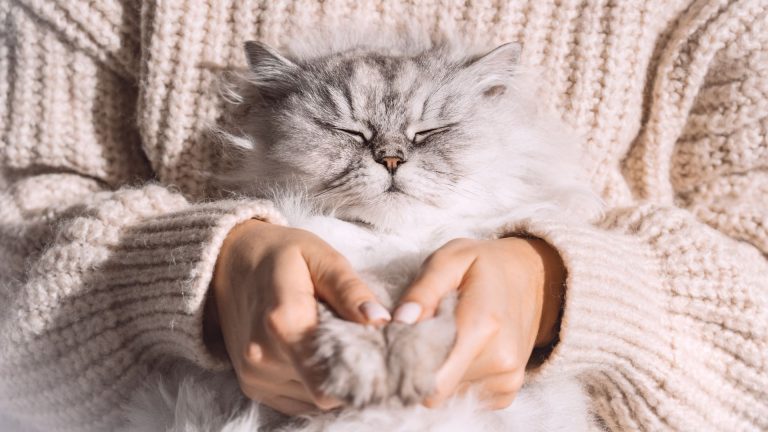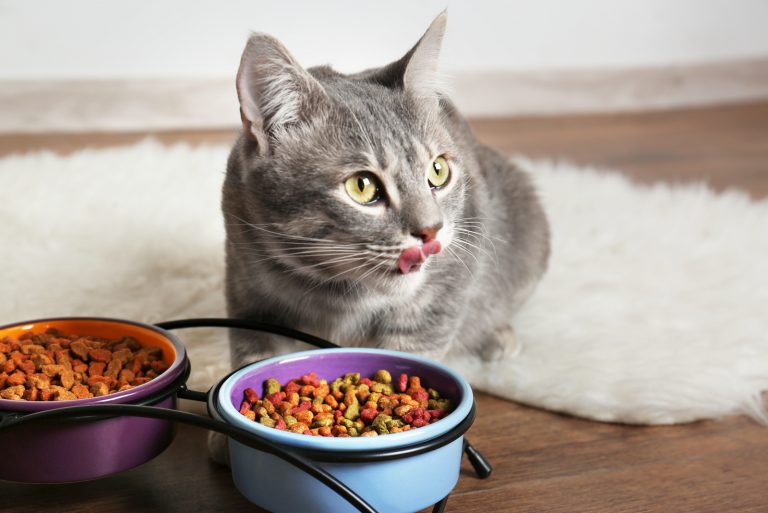Best Cat Shampoo Alternatives: No More Bathing Nightmares
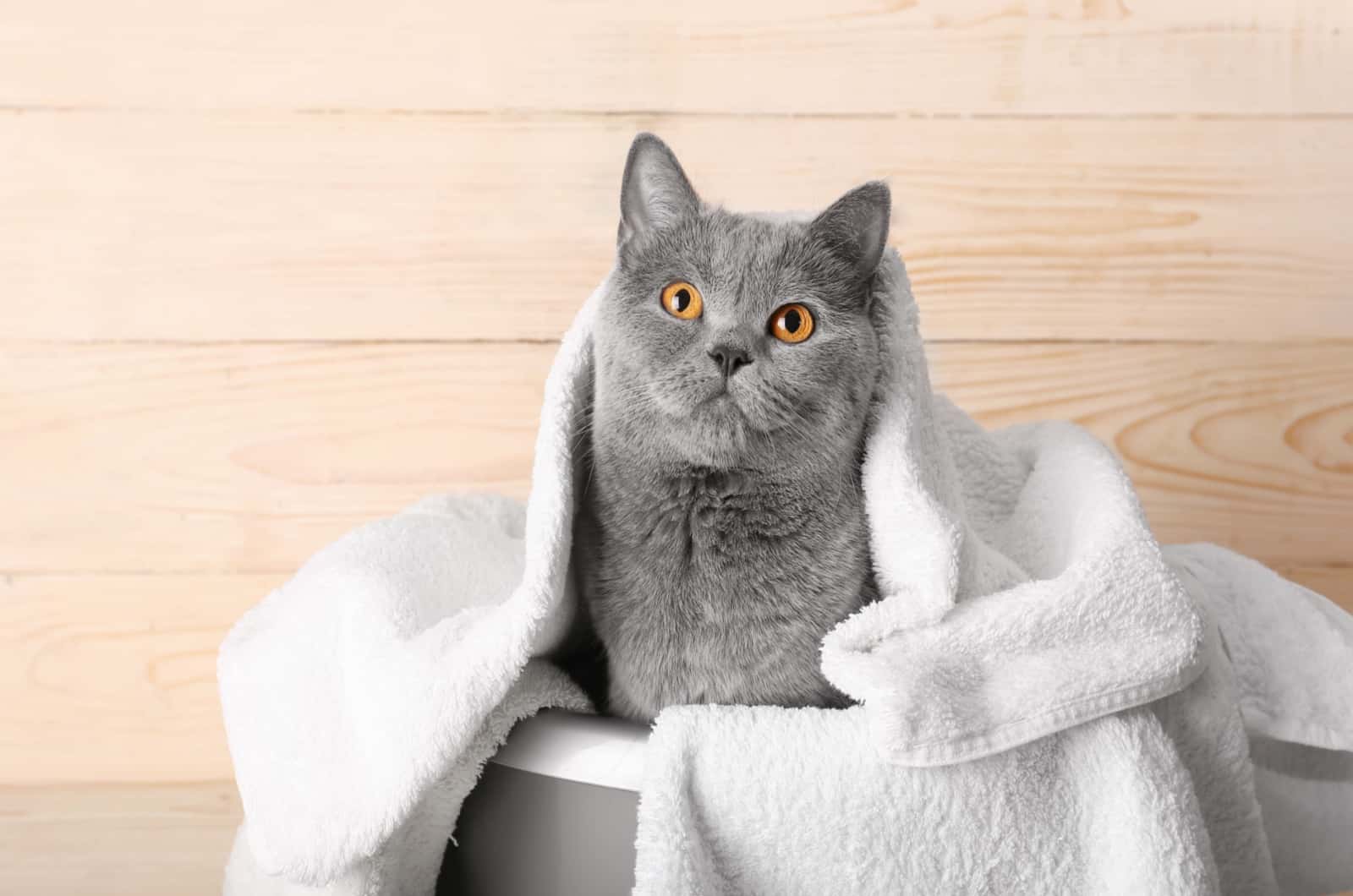
Cats are usually considered to be the cleanest domestic animals. They spend hours and hours grooming themselves. So, why do they need bathing?
Some cats still require regular bathing for several reasons. For example, some cats may get dirty while exploring outside and need a bath before entering the house.
Also, bathing helps to keep the cat’s coat healthy, clean, and soft. Bathing plays an important role when it comes to shedding because it helps in reducing the amount of dead cat hair.
Longhaired cats require more frequent bathing than shorthaired cats, as they may have more problems with tangles, clumping, and shedding.
Nowadays, there are many different brands and varieties of cat shampoos which are great for your cat because they don’t contain any ingredients that are harmful for felines.
Despite this, many cat owners wonder if there are any cat shampoo alternatives, in case they run out of cat shampoo, or if they bathe their cat so rarely that they don’t need a cat shampoo.
Well, luckily, there are a few cat shampoo alternatives, so if you’re interested read on and find out which products can be safely used as an alternative for cat shampoo.
8 Cat Shampoo Alternatives
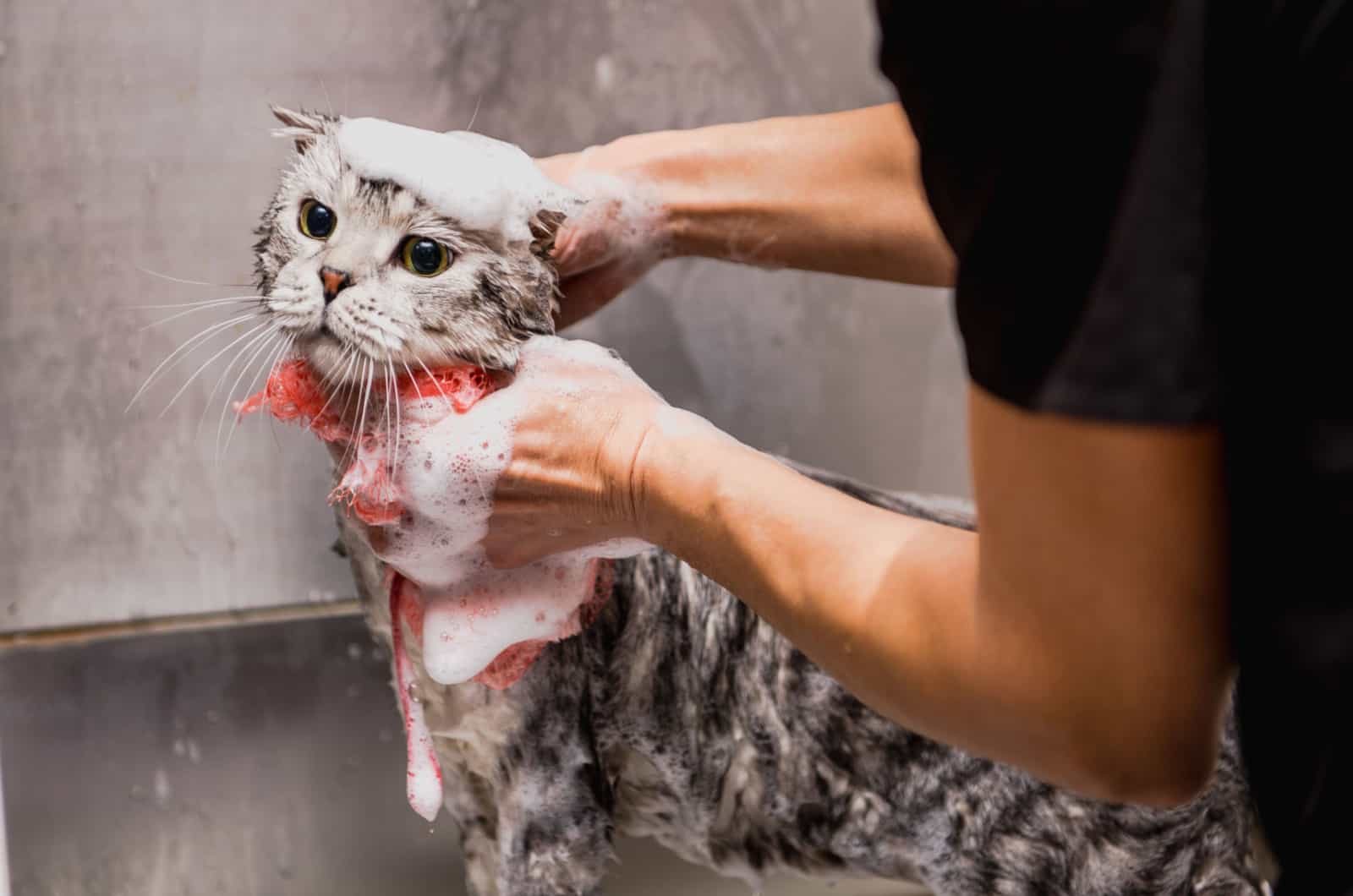
So, if you don’t have, or don’t use, cat shampoos designed specially for cats, worry not, because there are some cat shampoo alternatives that you can use for your feline friend.
The best thing about these alternative shampoos is that most of these products can be found in every household, so you don’t have to spend extra money on them.
However, it doesn’t mean that every one of these alternatives will suit your cat or that these are a permanent solution, therefore you should be careful, and be patient until you find the alternative shampoo that suits your cat the best.
So, let’s check them out!
Baby Shampoo
Pros:
✅ Gentle formula
Cons:
❌ Not everyone has baby shampoo in their household
If you run out of cat shampoo, and have some baby shampoo in your household, then you can relax! Baby shampoo can be used as an alternative for a cat shampoo. However, pay attention to the ingredients, and make sure that is a “no tears” formula that will be gentle for your kitty.
When bathing a cat with baby shampoo, use the same amount as you would use regular shampoo, lather well and then rinse it off with warm water.
Baby shampoos have a gentle formula, but they still shouldn’t be used for a long time, but only in case of emergency.
Baby Wipes Or Pet Wipes
Pros:
✅ Easy to use
✅ Pet wipes contain pet-friendly ingredients
Cons:
❌ Only for smaller stains
Baby wipes or pet wipes are a product that almost everyone has in their household. These can be a life-savior when your cat gets a little bit dirty but doesn’t require a real bath. In these cases, just use baby or pet wipes and clean your cat with them.
This clean up process is easier than regular bathing, it is quick and easy, and it’s especially good if your cat is not a fan of bath time.
However, when using baby wipes, pay attention to the ingredient list. Some ingredients can be very harmful for felines, therefore you should always check. Avoid using wipes with fragrances as they may cause skin irritation to your furry friend.
Dawn Dish Soap
Pros:
✅ Good for sticky or oily residue
Cons:
❌ May contain harsh chemicals
Dawn dishwashing soap is another cat shampoo alternative that is used mostly in rescue and adoption centers. The main reason why it is used as an alternative for a cat shampoo is because it removes dirty, sticky, and even oily residues.
However, when using dishwashing soap as a cat shampoo alternative you need to pay attention to a few things. The best thing is to mix 1/4 of the dawn soap with 1/2 cup of apple cider vinegar and two cups of water. You can use this mixture as an occasional shampoo alternative.
Dry Shampoo
Pros:
✅ Good for cats that don’t like water
Cons:
❌ Not effective with extreme dirt
If bathing is your feline‘s worst nightmare, there’s a great solution called dry shampoo. Dry shampoo doesn’t require water, and there are a lot of things that can be used as a dry shampoo that are safe for cats.
Also, you can check for real dry shampoos designed specially for cats, whatever suits you best.
No matter what kind of dry shampoo you use, just simply pour it on the cat, rub it into the fur, use a regular brush and start brushing the cat. Eventually all the dirt will come out after the brushing.
This dry shampoo bath isn’t very effective for extremely dirty cats who require real bathing, but it’s a good refreshment from time to time.
As far as household products are concerned, you can use baking soda, cornstarch, or even oatmeal for a cat’s dry shampoo, so read on to see how and find out if it is effective!
Baking Soda
Baking soda is an acceptable option when it comes to waterless baths. It’s usually used for quick refreshments and for smaller residues as it is not effective for very dirty cats.
The process is the same as with every dry shampoo. Simply sprinkle the baking soda on the cat’s fur, (make sure you avoid its face), and massage it well. Leave it for a few minutes, and then brush it out using a regular brush.
It’s very important to keep the baking soda away from the cat’s face, as it may cause irritation.
Baking soda may be more visible on cats with darker coats, so if you’re not sure that everything came out with the brush, you can use a dry towel at the end to remove any remaining residue.
Try to remove as much as possible because when cats lick themselves they may ingest a lot of baking soda which may lead to issues such as vomiting, coughing, diarrhea, and similar.
Cornstarch Shampoo
Another perfect dry shampoo that you may find in your household is cornstarch. The process is the same as with dry shampoo; massage the cornstarch in the cat’s fur, leave it for a few minutes, and then brush it out carefully.
Oatmeal Shampoo
Oatmeal can be used for a dry bath, and it’s very safe for cats, leaving the cat’s fur soft and silky. However, you need to use it properly.
When using oatmeal as a dry shampoo, just massage the oatmeal into the cat’s fur, leave it for a few minutes, then brush it out. During the brushing process, all the dirt will eventually come out.
Here’s the recipe for an oatmeal shampoo:
• 1 cup of ground oatmeal, 4 cups of water, and 1 cup of baking soda
Castile Soap
Pros:
✅ Contains olive oil
✅ Hydrating
Cons:
❌ May contain other harmful ingredients
The best thing about castile soap is that it contains olive oil which is very moisturizing and healthy for the cat’s skin and fur. It’s especially good for cats with sensitive skin or dry skin.
However, before using this shampoo, make sure that it doesn’t contain added ingredients which may be harmful for felines. Ensure you rinse the soap out of the cat’s fur thoroughly, so that it doesn’t cause irritation.
Unscented Neutral Soaps
Pros:
✅ Ph-neutral
✅ No fragrances
Cons:
❌ May cause dry skin
Although neutral soaps aren’t the best choice for cat shampoos as they may cause dry skin, breaking down the skin’s natural oil; there are some soaps that are less harmful than others. .
So, if you need a quick alternative for a cat shampoo, use ph-neutral soaps that don’t have added fragrances. These soaps may cause dry skin, however, usually they don’t cause any skin irritation and are a good choice in emergency situations.
Vinegar
Pros:
✅ Good for sensitive skin
Cons:
❌ Strong smell
Even though vinegar has a strong scent, it can actually be good for our furry friends. It’s very good for cats with sensitive skin. You can use it on its own, or mix it with other things such as soap or even oatmeal.
You can add a small amount of vinegar into a bath and bathe your cat with it. It’s very helpful in cleaning your cat, and most importantly, the strong smell of vinegar disappears very quickly, so you don’t have to worry about that.
DIY Shampoo
In cases of emergency where your cat desperately needs a bath, and you don’t have a suitable product to use, there are always DIY products. Here, I’ll give you an idea for a DIY shampoo, which contains ingredients that almost every household has.
What’s most important is that it’s completely safe and the bathing process is quick and easy. For the cat dry shampoo recipe, you’ll need to mix 1/2 cup of ground oatmeal with 1/2 cup of cornmeal, adding 2 tablespoons of cornstarch. Mix these ingredients, and pour it onto your cat’s fur.
Make sure that you avoid the cat’s face, just like with the baking soda, and massage it in the cat’s fur. When you’re done, leave it for a few minutes, and after that use a regular brush to brush out the DIY shampoo along with the dirt.
This is a solution for a quick dry wash, so unfortunately, this DIY shampoo won’t be very effective if the cat is extremely dirty, or if there is any sticky or oily residue.
SEE ALSO: 18 Best Alternative Cat Litter For Your Cat – Check It Out!
Human Shampoo As Cat Alternative Shampoos: Yes or No?
Human shampoo wasn’t mentioned on the list of cat shampoo alternatives, and you probably wondered why. Well, the main reason why the human shampoo is a big NO as an alternative for a cat shampoo is because humans and cats have different pH levels of the skin.
Human shampoos are designed specifically for human skin chemistry, therefore they may contain certain substances that may be extremely harmful for cats.
That’s also one of the reasons why there are cat shampoos that are designed specifically for cats and their skin chemistry.
Dog Shampoo As Cat Alternative Shampoos: Yes Or No?
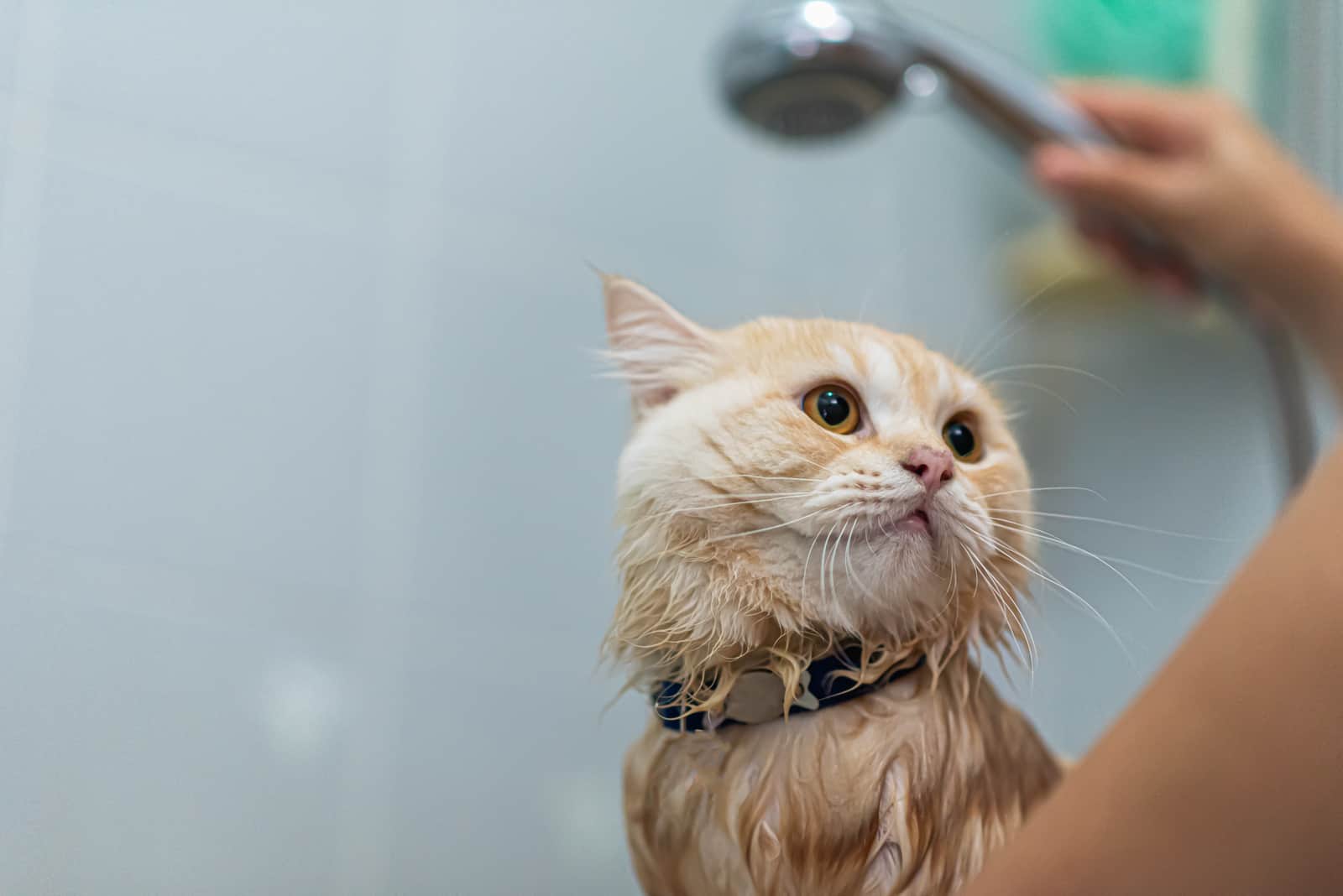
Just like with human shampoo, a dog shampoo is another NO for cats. The reason behind this is that dog shampoos are designed specially for dogs and their skin, therefore some typical dog shampoo ingredients may be extremely harmful for cats.
For example, the two ingredients which almost every dog shampoo contains are essential oils and permethrin. Essential oils may be very aggressive to a cat’s skin and are likely to cause them allergic reactions or skin irritations.
On the other hand, permethrin in dog shampoos is designed to kill fleas, however that may be dangerous for our feline friends.
The skin of cats and dogs don’t have the same pH level. Dogs have a more neutral pH range of 5.5 to 7.2, while cats have a pH range of 7.0 to 9.0. Therefore, if there are no available healthy alternatives for a cat shampoo, it’s best to purchase a cat shampoo, which is the safest for them.
All in all, it would be best if every furry family member has its own pet shampoo to keep their coat, skin, and overall health in a good condition.
SEE ALSO: Cat Nail Caps – Everything You Need To Know
Shampoo Ingredients That You Should Avoid
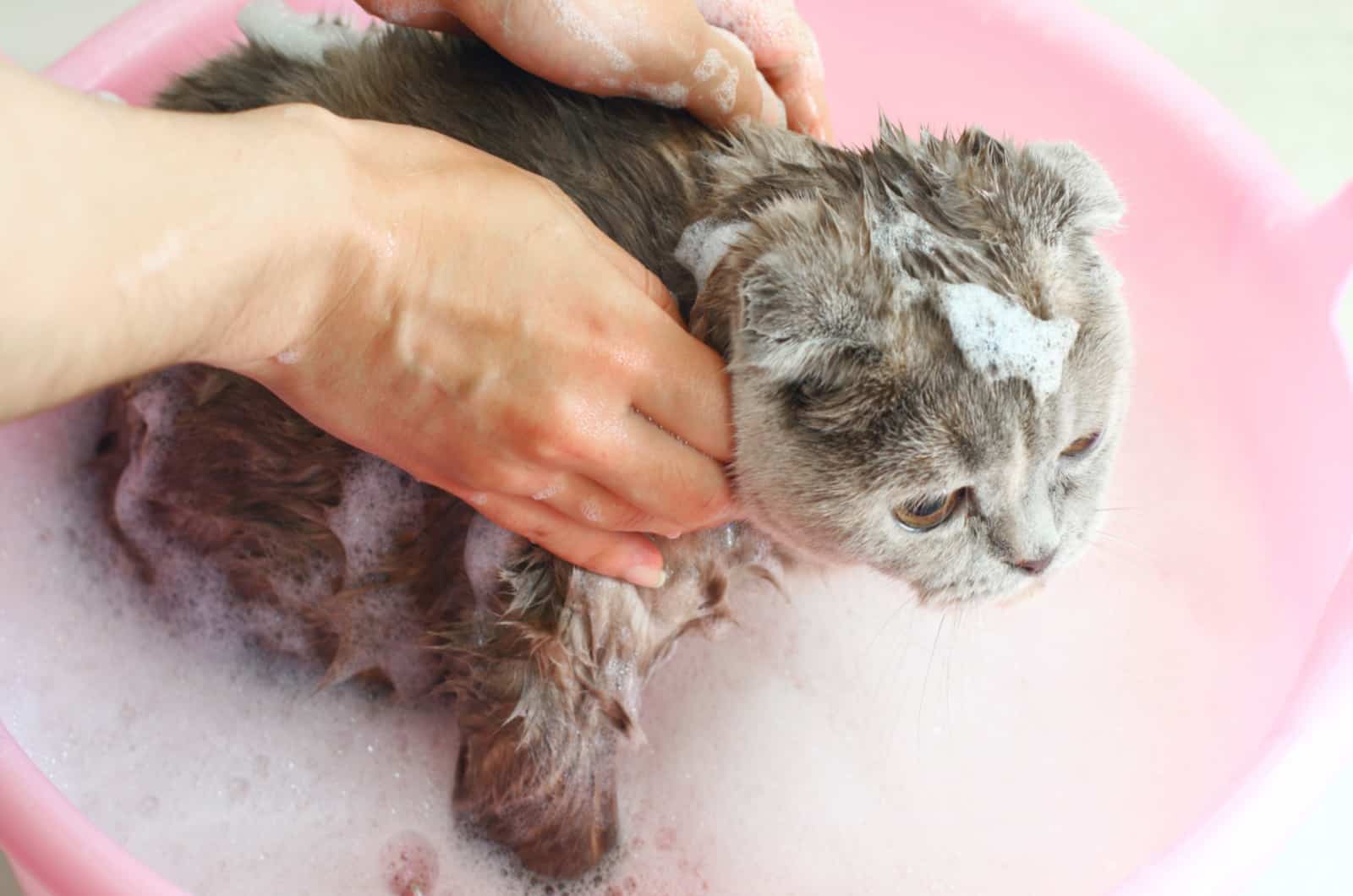
It’s very important to be careful when choosing shampoo for your cat, because most soaps aren’t pH balanced for cats and may contain extremely harmful ingredients.
So, when you’re looking for a cat shampoo alternative, make sure you use those shampoos that contain natural ingredients such as aloe, oatmeal, coconut, or olive oil, and avoid the following ingredients in a cat bath!
Artificial Fragrances
Artificial fragrances should definitely be avoided when it comes to cats, despite the fact that fragrances are often the main thing that attracts the customer!
These artificial fragrances can be extremely dangerous for felines causing allergic reactions, cancer, and neurotoxicity. In addition, they can also be very dangerous for a cat’s immune system.
Artificial Colors
Another harmful ingredient that you should avoid is artificial colors or dyes, mostly because they contain petroleum which may have negative consequences for a cat such as allergic reactions or even serious issues such as organ damage, cancer, and birth defects.
Parabens
Most shampoos contain parabens which also need to be avoided. The main reason for that is because it has been proven that parabens may cause tumors and cancer in pets. In addition, they can harm a pet’s reproductive organs.
Sodium Lauryl Sulfate (SLS)
Usually, a cat’s coat consists of several layers. Every pet owner knows that the outer layer serves cats to protect them from external damages.
The main reason why you should avoid Sodium Lauryl Sulfate in cat shampoos as well as in cat shampoo alternatives is because SLS affects the cat’s outer layer of the fur, making it weaker.
This may lead to damage and problems such as causing the cat to have allergic reactions or skin irritations.
Cocamidopropyl Betaine
Cocamidopropyl Betaine contains coconut oil which isn’t harmful for cats. However, it also contains other ingredients that are highly dangerous for felines.
These harmful ingredients may cause skin irritation or allergic reactions in cats, and also affect the immune system.
Unfortunately, a lot of shampoos contain these ingredients, so you need to be very careful when buying a cat shampoo for your furry friend or choosing a healthy alternative to cat shampoo.
SEE ALSO: Best Cat Tree For Large Cats – TOP 13 Product Reviews
Do Cats Need Baths At All?
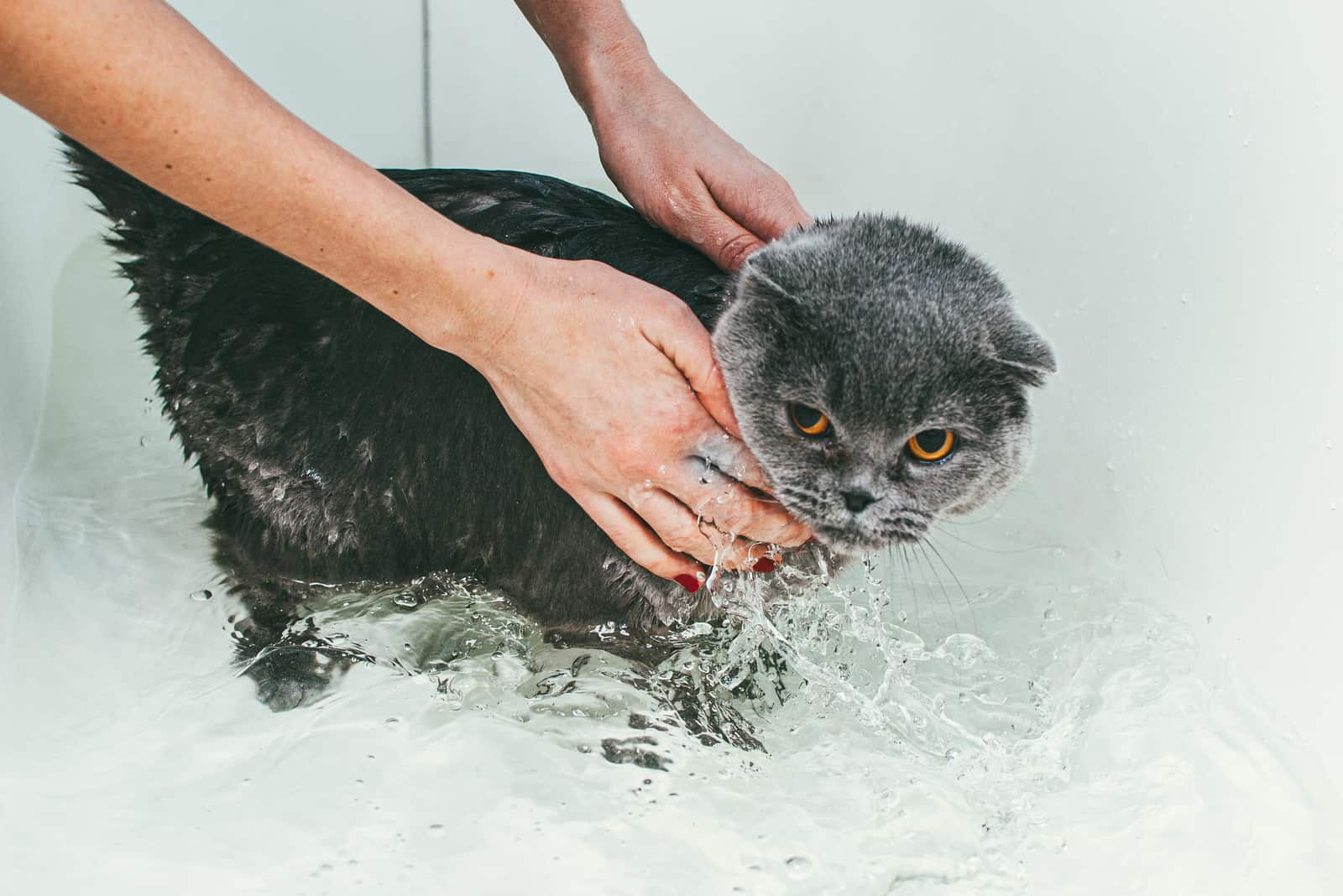
Most pet owners believe that cats don’t need baths at all, as they clean themselves all the time. However, there are some situations where bathing is unavoidable. Bathing a cat from time to time helps them keep their coat and skin in good condition.
So, for example, in situations where your cat gets extremely dirty, or has sticky or oily residue in their fur, bath time is a MUST!
Of course, longhaired cats require regular bathing in order to help them during shedding seasons and to prevent their longer hair from matting and tangling.
Older cats or overweight cats also require regular baths because they’re not able to clean themselves as they could before.
So, if you notice your cat grooming excessively with a lot of dead hair falling out, you should provide her with a bath in order to help her out, or simply take her to the groomer.
If your cat is prone to certain allergic reactions, or other issues such as irritations, itching, dandruff, then you should look for a hypoallergenic cat shampoo or other types of cat shampoos for sensitive skin.
All In All
If you’re looking for cat shampoo alternatives, then this article is for you. It’s very important to know that cats have different pH skin than humans, therefore you should only use shampoos that are designed just for cats if you want to provide your beloved pet with a lovely bath.
This article provides you with cat shampoo alternatives which you can use in case of emergencies. However, make sure that you only use them occasionally, and only if you run out of cat shampoo.
A lot of these shampoo alternatives refer to dry shampoos, which are a great option when there’s no need to wet the cat completely. Dry baths are great when cats aren’t completely dirty. However, they won’t be helpful if your feline is really dirty with sticky or oily residues.
All in all, even though cats clean themselves very often it’s important to provide them with an occasional bath to help them keep their coat clean and healthy with a proper cat shampoo.

